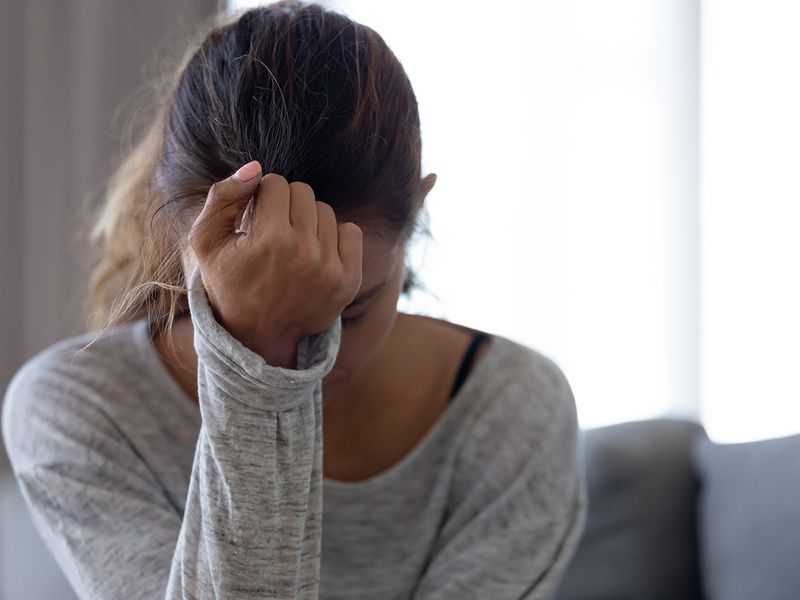
What does it mean to feel lost? For some like Dubai-based Sharanya Dutta, a media professional, it could mean to have everything, yet feeling empty. As she says, she has it all: A husband, three children and a dog. It almost seems idyllic: A stable job, weekend picnics and a loving family. And yet, she feels ‘lost’.
“For me, it feels like there’s something I haven’t done in my life. I’ve missed out on something, that I could have done, that would have made me feel fulfilled. I just don’t know what it is,” she explains, frankly. Life was a lot less mechanical in her twenties, she says. Now in her late forties, she has just been busy with work, her family, and taking care of her home.
There are stories, and there are stories. For another Dubai-based media professional who doesn’t wish to share their name, it’s a feeling of being stuck, despite doing well for yourself. Just an endless run on a hamster wheel; fulfilling a day-to-day routine and receiving a monthly paycheck. “At the end of the day, I just end up wondering, did I really want my life to be like this,” they say.
As it seems, there are different feelings of being ‘lost’. “There’s no universal understanding of being lost,” explains Reema Baniabbasi, counselling psychologist, from The Psychiatry and Therapy Centre, Dubai. “It’s a deeply subjective emotion,” she says, and a lot depends on people’s personalities, mindset and experiences. She illustrates with an example: For instance, one high-performing person, gets laid off at work. They’ll be distressed, but they will keep looking for jobs and interviews. On the other hand, such a situation could eat into someone’s confidence, and they might feel lost.
‘A numbness that sets in’

Feeling lost is a broad and complicated emotion, as explained by Ana-Maria Gomez, a psychologist at Dubai-based Sage Clinics. One common thread for many is that they don’t know what the next step in life is. It's when you don't feel any purpose; you don't know what's happening exactly, she explains.
There are many situations that make a person feel like this, including a flagging career, broken relationships and the idea that your life is not moving in the direction you imagined. It means a sense of despondence, as Dubai-based wellness expert Cassie Mather-Reid explains. Your coping mechanisms are being tested; you have no strategy.

When you feel lost, you feel as if you don't have a purpose in life, or you don't know what is happening. You realise something is not working for you, and that creates anxiety...
There are no clear-cut ‘symptoms’ or signs for this strange, overwhelming feeling. At most, it can be described as an emotional disconnection, of varying intensities. It could also be associated with confusion. “It doesn’t have to just be unable to getting out of bed, or lack of friendships, inability to be in touch with people. It could mean doing everything right, and still feel directionless,” explains Natalia Heath, a Dubai-based life coach.
Sometimes, it can be described as an ‘emotional’ numbness, she says. “It makes them yearn for a different life. They lose interest in the life that they do have,” she says. This could also be the result of overpowering grief. When a person goes through a particularly grievous loss, they become a shadow of themselves, she says.
“It takes a lot of courage, strength and inner work to understand your own emotions, so that you can ‘find’ yourself again, so to speak,” she says. Grief also plays a crucial role in adding to this feeling of being lost, as Gomez explains. When we lose a relationship, an opportunity or something close to us, we also lose ourselves in that grief.
Wishful thinking
For many people, they start thinking of their life in reverse.
“They start reveling in what-could-have-been situations and start imagining their life, had they not made a particular choice. ‘What if I had done this to save my relationship’, for example. Or, ‘what if I had done this, to further my career,’” adds Heath. “They start believing that they would have been a ‘happier and much more successful’ person than they are now. Worse, they start comparing themselves with others. Everyone else seems to have a sense of direction and purpose, except them,” she says. “In the age of social media, it’s easier to be attracted to this negative strain of thought, than to actually doing something about it.”
And so, they won’t try changing their current situation. They won’t try finding themselves. “They’ll pursue their current job, even if they hate it. It gives them money and comfort. So they won’t change it,” says Heath. “They promise themselves that one day, it will all be worth it. This keeps chipping away at them,” she says. They won’t make concrete plans for the future; they will keep putting it off. As they keep doing this, they disempower themselves, she says.
Looking for your ‘old’ self
Where can you find your old self? In photographs, songs, diary entries and old letters, if you’re lucky.
“Many of us will reminisce about old versions of ourselves and previous times in our lives that we remember with affection,” says Lauren Smith, a Dubai-based clinical psychologist. “This nostalgia comes from a longing for familiarity and comfort. It is human nature to find solace in memories, especially during challenging or uncertain phases of life,” she says. And sometimes, we get lost in looking for those old versions of ourselves.

Many of us will reminisce about old versions of ourselves and previous times in our lives that we remember with affection. This nostalgia comes from a longing for familiarity and comfort. It is human nature to find solace in memories...
Abu Dhabi-based Corrin Lambert (name changed on request), feels particularly lost, when she sees her old writings and blogs. Now a successful public relations professional and mother of two, she doesn’t have much time for writing stories and crafting fun micro-fictional tales like she used to. “Life is currently about managing events, editing and writing press releases,” she laughs. “I write, but not in the way, I had always wanted to. When I get a chance to myself at the end of the day, I think, that’s when it really sinks in, how lost I really feel,” she says.
Being lost also feels like an identity crisis, explains Heath. You keep remembering that ‘old spark’ that you used to have, and believe that you don’t have it anymore. “People start yearning for their old selves. They idealise what they were in the past, not realising that many of them are doing just as well in the present. This particular feeling of being ‘lost’ sends them down the rabbit hole that is almost like an existential crisis,” she says.
How do we find ourselves?

Sure, you can try concrete tips that involve lifestyle changes like workouts, talking to friends, changing food habits, pursuing new hobbies, journaling and reading. However, before any of that, as the experts explain in consensus, you need to really understand what ‘finding yourself’ means. That, involves the difficult messy work of looking inwards. What really is this search, and what will come from it?
As Smith explains, the truth is to accept that we are different people, compared to what we were earlier. “The reality is, that we are different people now, compared to who we were,” she says. “Navigating through uncertainty and rediscovering your path can be challenging, especially when you're unsure of where to begin. It requires self-reflection, exploration, and taking intentional steps to work towards a life worth living,” she says.

I think people need to have a more expansive view of themselves, rather than just living in the past or imagining the future. You need to examine what life lessons you have gained, and how far you come...
As Baniabbasi summarises, you need to accept who you are now. “I think people need to have a more expansive view of themselves, rather than just living in the past or imagining the future. You need to examine what life lessons you have gained, and how far you come,” she says, “You need to acknowledge the dynamic nature of your own self-worth.” Or as Dubai-based mindset coach Natalie Hore puts it, overcoming these feelings involves self-awareness; delving into deep questions about your thoughts and emotions.
When you can identify the reasons that you started to feel this way in the first place then you can start to understand how to work with those triggers so they don’t keep you there, explains Mather-Reid. "You can take a moment to look at what could be next for you. Understanding the stress and overwhelm that ultimately brought about the lost emotion can help you . Shift your mindset, create new goals, do things that make you feel fulfilled, work on how you feel about yourself and make the changes you need in your environment," she says.

When you can identify the reasons that you started to feel this way in the first place then you can start to understand how to work with those triggers so they don’t keep you there. Understanding the stress and overwhelm that ultimately brought about the lost emotion can help you. Shift your mindset, create new goals...
You can always try breaking down larger objectives into smaller, achievable goals, explain Smith and Hore. As the experts explain, it creates a sense of accomplishment and direction.
You could even try exploring opportunities that could be outside your comfort zone, such as a new hobby or career path. It may feel daunting, but it can also lead to discoveries about what resonates with you and aligns with your values. On the other hand, don't forget to keep reflecting: Regular self-reflection is an equally valuable tool that helps in the gauging process, and where you live a more fulfilled life, says Hore.

Regular self-reflection serves as a valuable tool in gauging process, towards feeling as though one is living a more fulfilled life...
Lastly, it might sound clichéd, but view setbacks as an opportunity.









